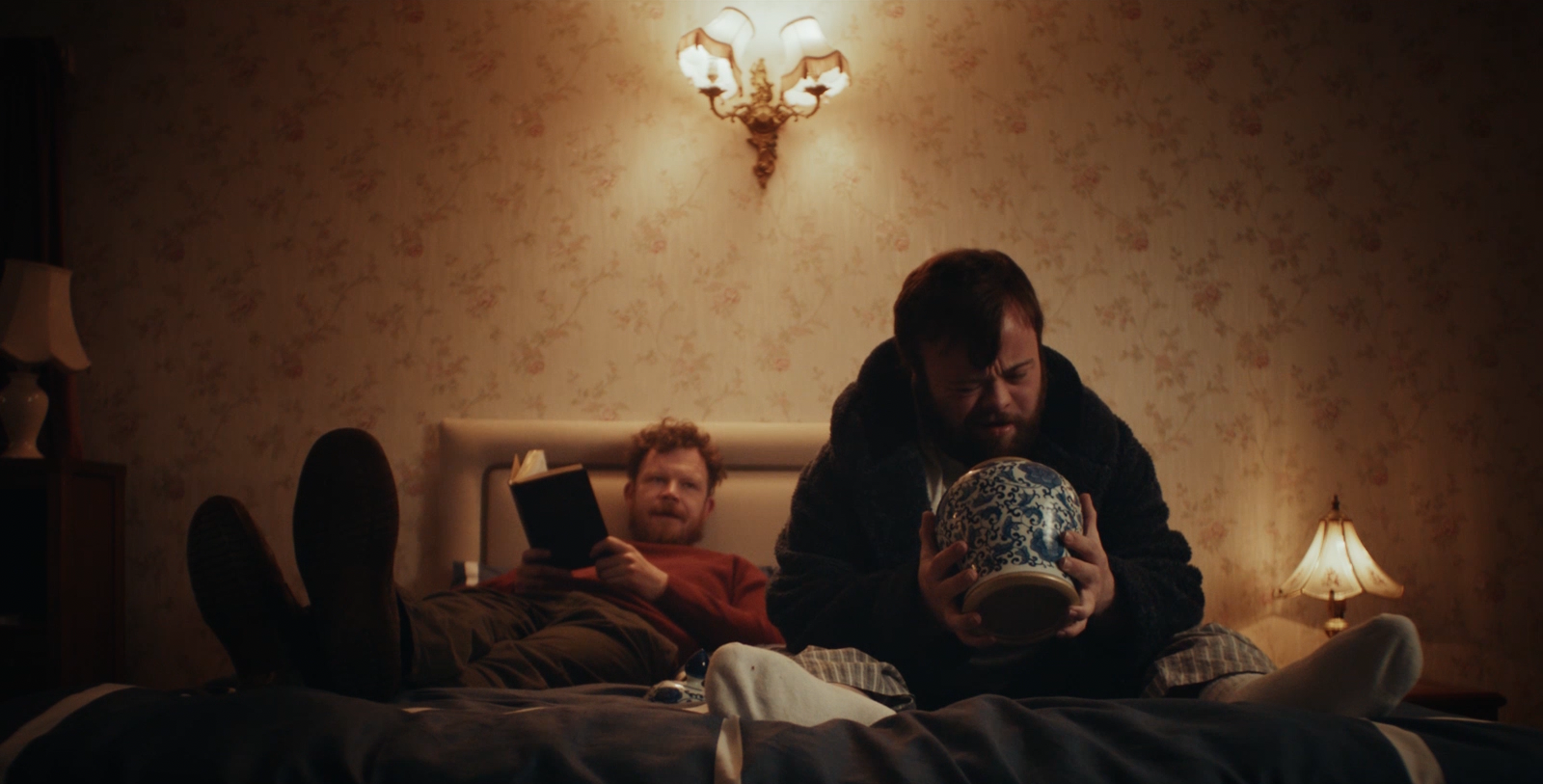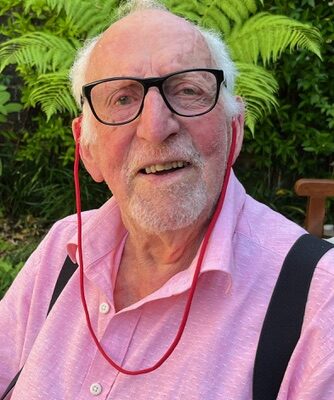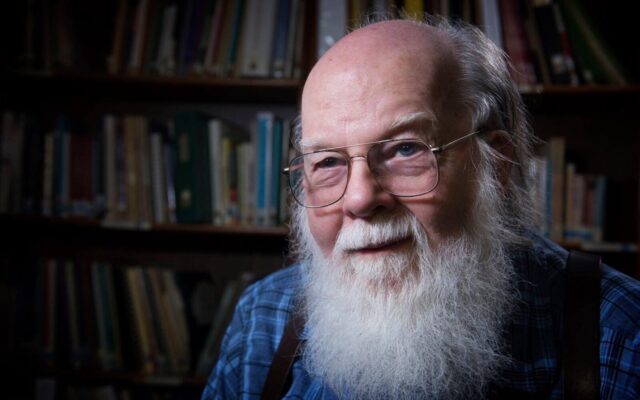First Oscar award for actor with Down syndrome
Actor James Martin, pictured, has become the first person with Down syndrome to win an Oscar following the success of black comedy An Irish Goodbye, writes Simon Jarrett.
The movie, reviewed in Community Living last year, won an Academy Award for best live action short film in March, having already picked up a similar accolade at the Baftas in February.
Shortly after collecting his Oscar, Irish actor James Martin said: “It doesn’t matter if you have Down syndrome, as long as you’re doing what you do. I do what I can to be funny.”
This beautiful and often hilarious film stars Seamus O’Hara and Martin as brothers who are dealing with the aftermath of their mother’s death on their farm in Northern Ireland.
The brothers live far apart and have very different lifestyles – and the film makes it obvious that they are not happy about being forced to spend time with
each other.
Martin previously starred in ITV series Marcella and BBC series Ups and Downs.
Relationship and sex needs unrecognised
Autistic adults’ mental health is at risk because of a failure to recognise their sex and relationship needs, research has shown.
The Acknowledging Autistic Adults’ Intimate Lives in Health and Social Care Policy report is based on an analysis of English national policy and guidance.
Researchers explored how the intimate lives of this population are represented and prioritised within these documents.
For example, the government’s five-year autism strategy, which aims to improve people’s lives by 2026, does not include such issues.
Autistic people face more social barriers to and experience greater social anxiety around intimate relationships, according to Monique Huysamen, Manchester Metropolitan University senior research associate.
Invisible art trail to go on show
Artist Henny Beaumont has collaborated with Kate Revere of social enterprise Revere the Residence on a forthcoming inclusive art trail, Invisible People.
Artwork by people with learning disabilities will be displayed in the windows of independent shops and cafes in Stoke Newington, Hackney, from 10-18 June.
Right to leave for carers
The Carer’s Leave Bill, currently under scrutiny in the House of Lords, could mean employees who are also carers get a week’s unpaid leave.
If it is passed, working people with care duties would have the right to a week’s annual leave to deal with planned caring commitments.
Around five million people in the UK balance caring responsibilities with paid work.
Barriers to leaving hospital
A lack of psychological support and a culture of being “set up to fail” are among the problems for people with learning disabilities and/or autism trying to leave long-stay hospitals.
A report, Why are we Stuck in Hospital?, by rights-based organisation Changing Our Lives and the University of Birmingham, gives the views of 27 people in three hospitals in England, including family members, hospital staff, commissioners, social workers, advocates and care providers.
Eating disorder service
A specialist service for autistic young people with eating disorders has been set up.
The Buckinghamshire, Oxfordshire and Berkshire PEACE (Pathway for Eating disorders and Autism developed from Clinical Experience) service is led by Oxford Health NHS Foundation Trust.
Harm of Covid caring
People who became carers during Covid-19 experienced a sharp decline in mental health, according to a study of almost 4,700 people by Lancaster University researchers.
Until now, little research has looked specifically at the mental health effects on those providing informal care.
What’s on our radar
Social care experts have been reacting with disbelief to plans in the spring budget that aim to boost the general labour market but ignore the support sector. Charity United Response was among those criticising the oversight as “a missed opportunity”.
Social care “is still on its knees with no extra funding”, agreed charity Leonard Cheshire Disability. It also welcomed the fact the energy price guarantee remains at the same level but pointed out that many disabled people used more energy, for example to charge support equipment.
The government’s failure to recognise the financial needs of disabled people was underlined by research from charity Sense, which found that more than half of them were in debt and more than three-quarters were worse off than in January.
The health and disability white paper promised a welcome end to the punitive work capability assessment. However, it received a lukewarm response, with Scope stating that one “out of touch test” must not be replaced with another.
BBC research revealed that half of state-funded schools in England for children with special educational needs and disabilities (SEND) are full.
Meanwhile, the Department for Education’s long-awaited plan to improve the postcode lottery SEND system was criticised by parents and campaign groups for not going far enough.
The BBC also reported that more than 60,000 adults with disabilities and long-term conditions in England were chased for debts by councils last year after failing to pay for their social care support at home.





